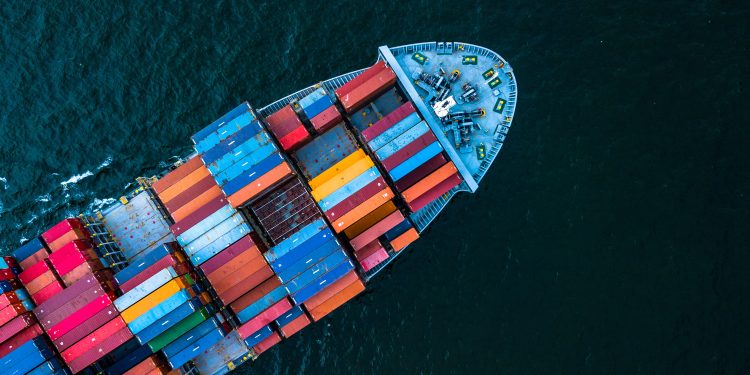ICS published Trade Policy Review, outlining some of the major strategic projects undertaken on behalf of the global shipping industry, in promoting and advancing the principles of free trade, fair competition and market access.
Crew change crisis
ICS has worked with industry partners and seafarers’ unions to address the crew change crisis, including through the development of industry best practice and guidance on COVID-19.
At the end of 2021, ICS issued a joint appeal to the UN General Assembly – alongside the road and aviation industries, and workers’ unions – for transport workers to be prioritised for WHO-recognised vaccines after those who are most vulnerable and health workers.
‘Vaccine nationalism’ continues to undermine multilateral efforts to ensure equitable access to vaccines, including for seafarers. Creating a standardised process for seafarers to demonstrate their health credentials is equally important.
In December 2021, shipowners, seafarers’ unions and maritime employer groups created their own approved international network of quarantine facilities, to ensure seafarers could join ships safely, despite unpredictable changes to government border policies to contain the spread of COVID-19. The Crew Enhanced Quarantine International Programme (CrewEQUIP) is a partnership between ICS, the International Maritime Employers’ Council (IMEC) and the ITF.
Due to the very poor treatment that millions of transport workers, including seafarers, have faced during the pandemic, all transport sectors are now experiencing notable shortages in their workforce and ICS expects this to increase, placing the supply chain under greater strain.
National governments must step up to the challenge at the highest levels. Concrete policy actions in line with the Neptune Declaration, (signed by over 800 organisations) are needed to address this humanitarian emergency and to keep maritime trade flowing safely, for the benefit of all national economies. This includes:
- The need for governments that have not yet done so to formally designate seafarers and other marine personnel as ‘key workers’, so that crew changes can take place in a safe and timely manner
- The need for governments to safeguard air connectivity between key maritime hubs for seafarers
COVID-19-Related Congestion in the Global Supply Chain
The effects of the COVID-19 pandemic on global supply chains have been unprecedented, including in the US where the government has recently brought into law a new Ocean Shipping Reform Act.
This new regulation is seeking to address supply chain disruption by singling out the shipping industry, with US President Joe Biden suggesting recently that shipping is to blame for the global turmoil in supply chains and increased freight rates. This could not be further from the truth.
There are many variable factors that impact shipping’s economic fundamentals, which are beyond the industry’s control and are very difficult to predict. The performance of oil markets is one such example, since energy is a significant aspect of the operating costs of shipping companies and this is ultimately reflected in the market.
The current ‘global energy’ and ‘cost of living’ crises, combined with the enduring aftershocks from COVID-19, have had a considerable impact globally, with oil and gas costs spiking worldwide. Ship operating costs also rose once again in 2021, having risen at their fastest pace in over a decade up to 2020.
Although the shipping industry has been navigating through uncharted waters since the outbreak of the pandemic, it has continued to play a critical role in keeping trade open and supply chains intact throughout.
From the outset, everyone was prepared to confront a protracted global recession, which ultimately did not materialise to the extent that many had feared when the pandemic began to take hold.
Initial analyses suggested that all shipping sectors would experience a considerable downturn, but COVID-19 lockdowns brought about major unexpected changes that triggered an extraordinary expansion in e-commerce.
Shipping Taxation Regimes
On March 2019, the Organisation for Economic Co-operation and Development (OECD) launched a major public consultation on the development of a multilateral digital taxation framework for global application.
This ambitious project, which involves well over 140 countries and jurisdictions within the context of the ‘OECD/G20 Inclusive Framework’, will change the entire international tax system and has potentially serious implications for international shipping.
Initially, the main focus of the initiative was to reach a global agreement for taxing highly digitalised multinational companies, e.g. Amazon, Google and Apple. Divergent views among the countries involved led to the scope of the initiative being extended significantly, to now cover all internationally operating businesses.
Countries and jurisdictions have always recognised the virtually universal practice that shipping companies (like aviation companies) engaged in international trade should be taxed in their country of residence, as enshrined in Articles 8 of both the OECD Model Tax Convention (MTC) and the United Nations MTC. This principle is currently in jeopardy.
Between 2019 and 2021, alongside other partner industry associations, ICS has been leading discussions with the OECD, on behalf of the global shipping industry, making the case for an exemption or ‘carve out’ under both pillars of the OECD Framework.
This included the submission of data and detailed information about how international shipping operates, to address various technical questions raised by the OECD in considering the prospect of an exemption for shipping.

































































